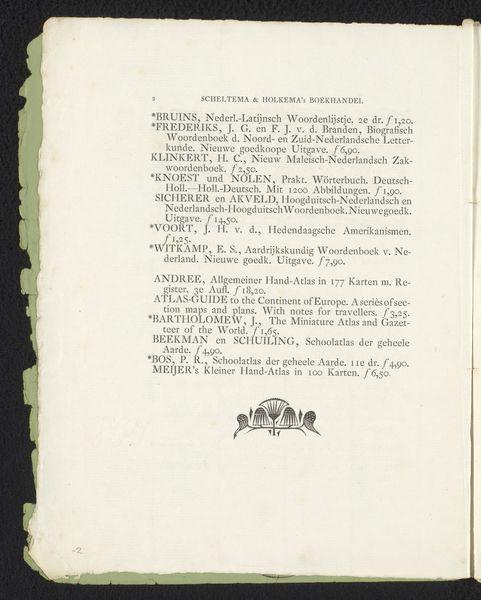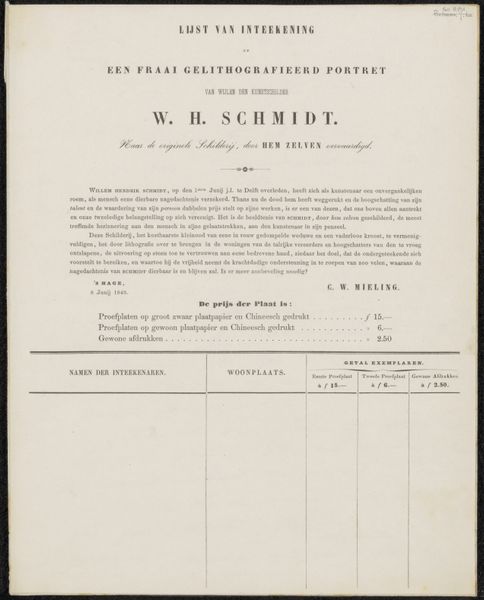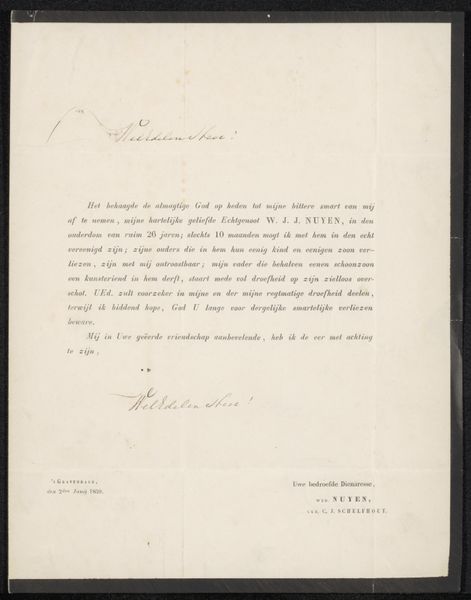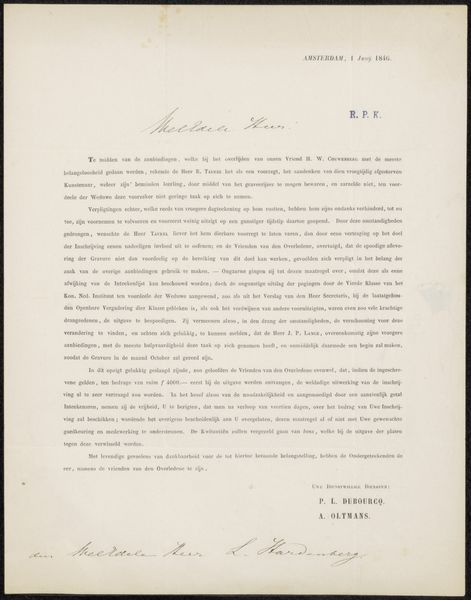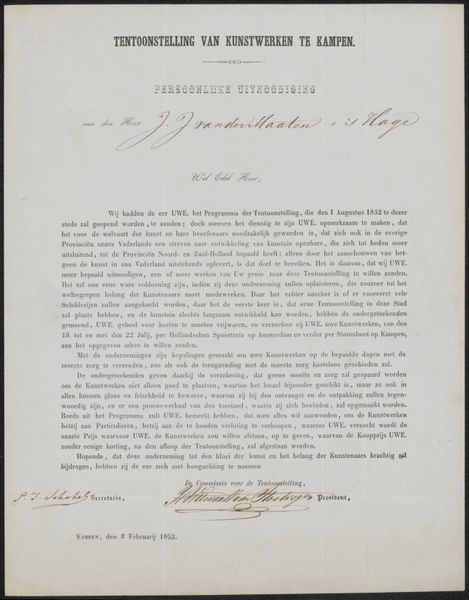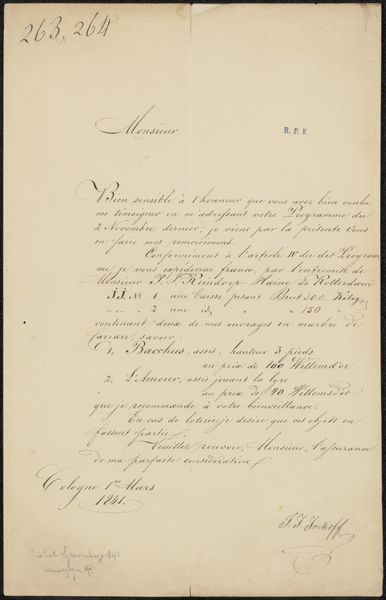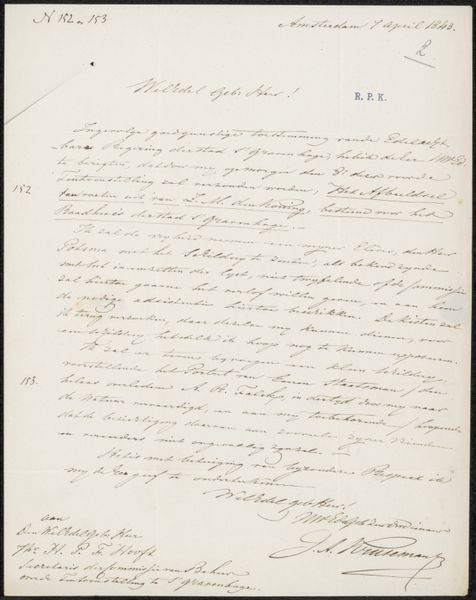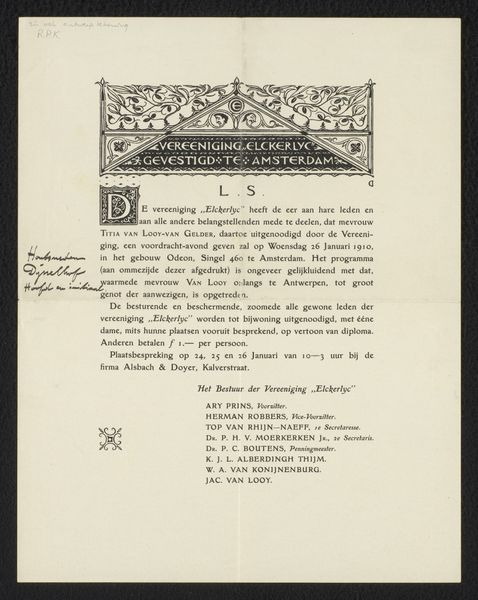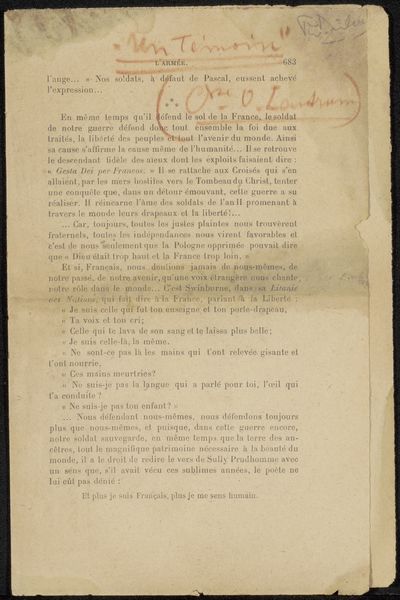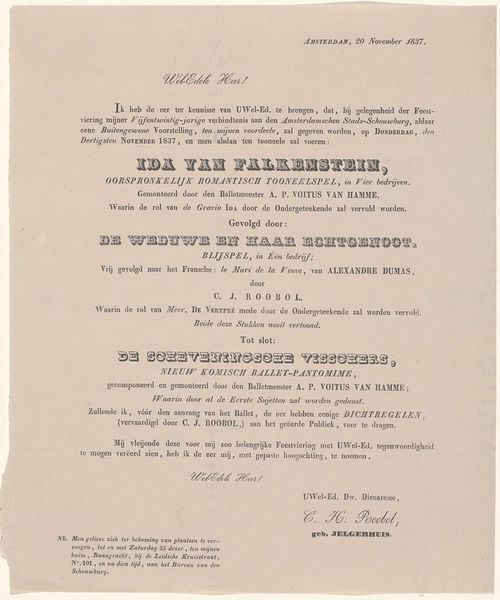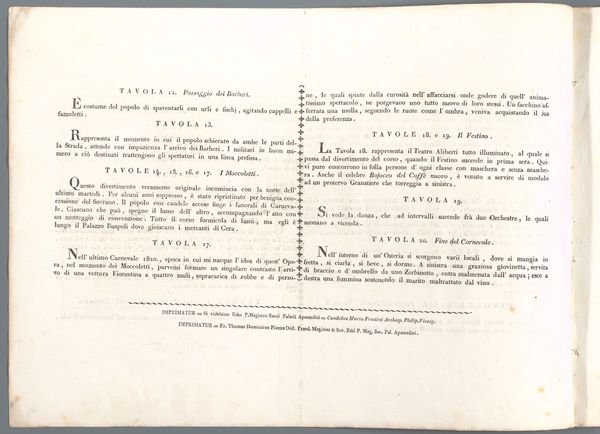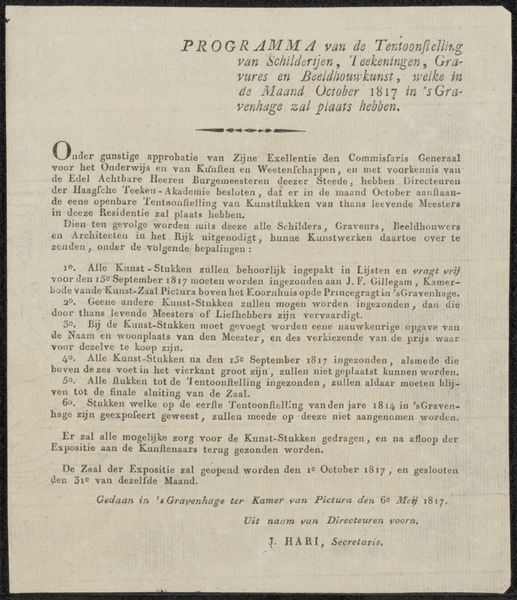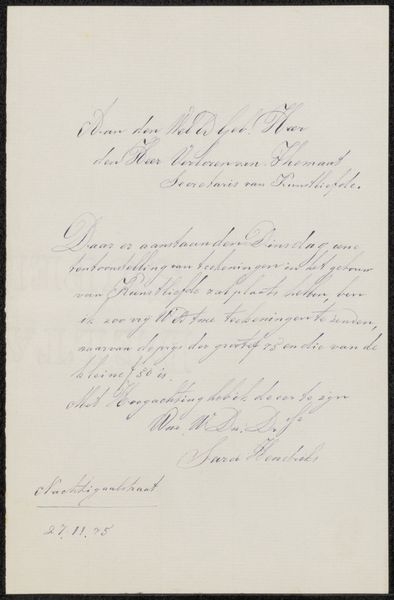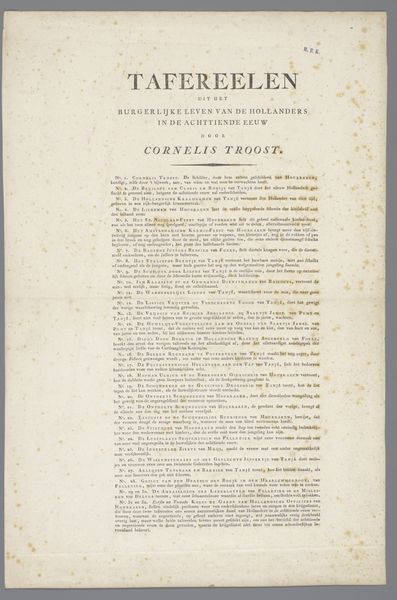
Prospectus en intekenbiljet betreffende een publicatie van Johannes Jelgerhuis Possibly 1827
0:00
0:00
johannesjelgerhuis
Rijksmuseum
print, paper, typography
#
portrait
# print
#
paper
#
typography
Copyright: Rijks Museum: Open Domain
Editor: This is a prospectus and subscription form by Johannes Jelgerhuis, likely from 1827. It's a print on paper featuring typography, currently held at the Rijksmuseum. What catches my eye is the emphasis on gesture and mimicry – why were these theoretical lessons so important? Curator: Ah, precisely! Notice the names invoked: Engel, Le Brun, van Mander, Camper... These are key figures in the history of art theory, particularly concerning the expression of emotion. The inclusion of Jelgerhuis himself situates the piece within a cultural memory concerned with portraying character on stage, the transmission of emotion through performance. Editor: So, this wasn't just about acting, but also about conveying something deeper? Curator: Consider what performance *means*. It's a staged reflection of human experience. Jelgerhuis’ focus on ‘gesticulation and mimicry’ suggests an effort to decode and codify nonverbal communication, to bring theatrical expressions into alignment with established classical forms, ensuring understanding and moral interpretation by its audience. How might this connect to social understanding at the time? Editor: I hadn't thought about the connection to moral interpretation. Was there a fear that unchecked emotion, unchecked physical expression, could be dangerous? Curator: Precisely! Control over the body becomes a way of reinforcing societal order. The ‘Theoretical Lessons’ offer a way to standardize outward displays of emotions. Even this seemingly simple invitation for subscription embodies deeper currents about control and conformity of cultural memory. What does that reflection spark in *you*? Editor: That it's not just ink on paper! It reveals expectations and control—an effort to organize public expression and behavior using classical foundations, revealing a kind of unspoken cultural desire for control, even through theatre. Curator: Precisely. We've peered beneath the surface. These names are anchors linking us to long-standing cultural ideals about proper expression and public bearing.
Comments
No comments
Be the first to comment and join the conversation on the ultimate creative platform.
